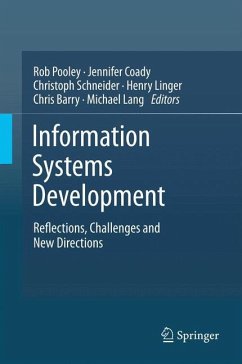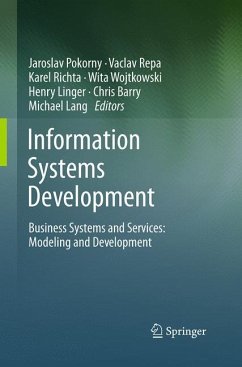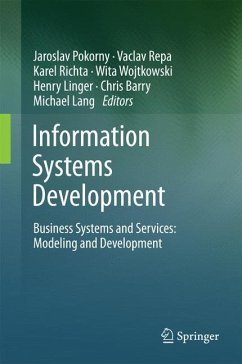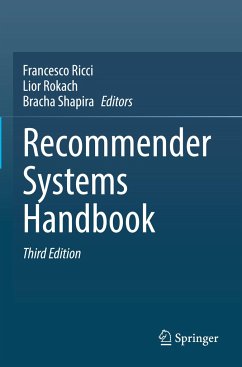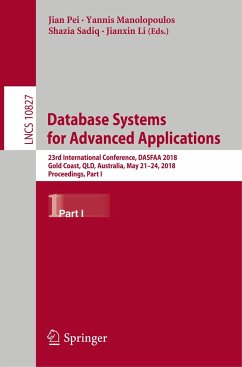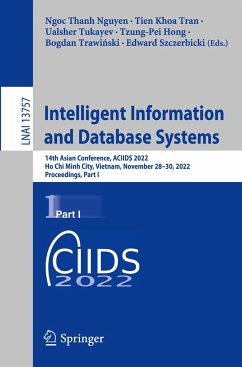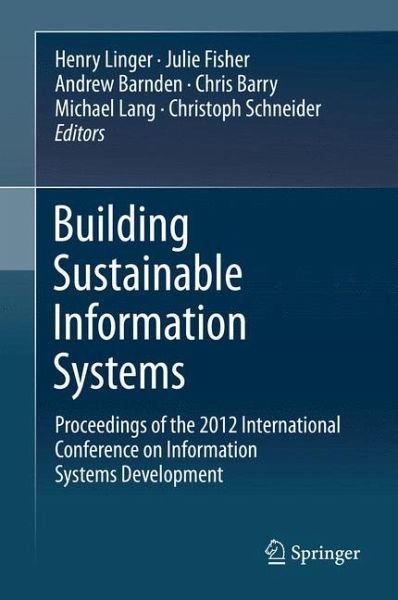
Building Sustainable Information Systems

PAYBACK Punkte
76 °P sammeln!
Information Systems (IS) as a discipline draws on diverse areas including, technology, organisational theory, management and social science. The field is recognized as very broad and encompassing many themes and areas. However, the development of artefacts, or information systems development (ISD), in the broadest sense, is a central concern of the discipline. Significantly, ISD impacts on the organisational and societal contexts through the use of the artefacts constructed by the development. Today, that impact also needs to be evaluated in terms of its effects on the environment. Sustainable...
Information Systems (IS) as a discipline draws on diverse areas including, technology, organisational theory, management and social science. The field is recognized as very broad and encompassing many themes and areas. However, the development of artefacts, or information systems development (ISD), in the broadest sense, is a central concern of the discipline. Significantly, ISD impacts on the organisational and societal contexts through the use of the artefacts constructed by the development. Today, that impact also needs to be evaluated in terms of its effects on the environment. Sustainable, or "green," IT is a catch-all term used to describe the development, manufacture, management, use and disposal of ICT in a way that minimizes damage to the environment. As a result, the term has many different meanings, depending on the role assumed in the life span of the ICT artefact. The theme of the proposed work is to critically examine the whole range of issues around ISD from the perspective of sustainability. Sustainable IT is an emerging theme in academic research and industry practice in response to an individual concern for the environment and the embryonic regulatory environments being enacted globally to address the environmental impact of ICT. In this work we intend to bring together in one volume the diverse research around the development of sustainable IS.







